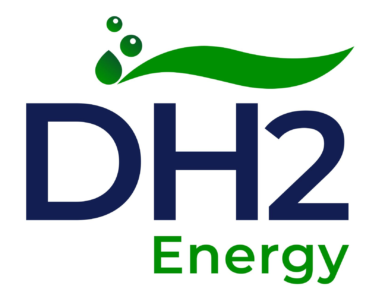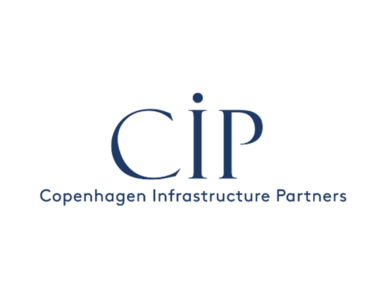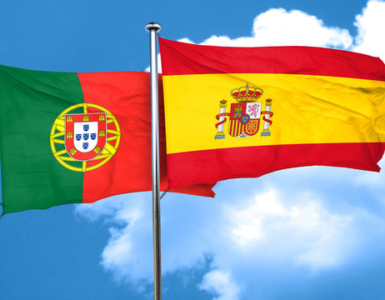Dutch government gives update on hydrogen policy.
Minister for Climate and Energy clarifies (future) hydrogen policy
The Minister for Climate and Energy (‘the Minister’) published two letters to parliament in which he informs the House of Representatives on the one hand about the status of market regulation and development of hydrogen and on the other hand about the state of affairs with regard to the development of a national transport system for hydrogen.
In these letters to Parliament, the Minister sets out the government’s insights and policy plans, based, among other things, on the results of the online consultation process for a market organisation of the hydrogen market in the Netherlands. We will highlight a few topics below.
Increasing hydrogen ambitions and scaling up the development of hydrogen
First of all, the Minister emphasises the importance of increasing hydrogen ambitions and scaling up hydrogen produced from renewable sources. This urgency exists in particular because of the current situation and the dependence on Russian gas.
🔥 What about we co-host a webinar? Let's educate, captivate, and convert the hydrogen economy!
Hydrogen Central is the global go-to online magazine for the hydrogen economy, we can help you host impactful webinars that become a global reference on your topic and are an evergreen source of leads. Click here to request more details
In order to promote the development of the renewable hydrogen market, the Minister indicates that he wants to take the most important decisions in the field of market regulation, market development and infrastructure this year.
In his letter to Parliament on the subject of ‘progress in the organisation and development of the hydrogen market‘, the Minister also addresses a motion by MPs Grinwis and Erkens on preventing dependence on hydrogen from one country.
The MPs propose to introduce diversification of hydrogen imports from countries of origin, whereby a maximum share of imports per country is set. The Minister sees no reason to introduce such measures at the moment, partly in view of the fact that many countries will be able to supply hydrogen in the long term.
The Minister does, however, indicate that he will continue to monitor future global developments from the point of view of security of supply.
Finally, the general tone of the letters to Parliament is that international cooperation is important, especially with neighbouring countries such as Germany and Belgium, but also with the other EU member states and other (hydrogen-producing and exporting) countries outside the EU.
Which hydrogen market activities will be regulated?
Results of the market consultation
As we have already indicated above, the Minister bases future hydrogen policy on the results of the hydrogen market consultation.
In this consultation, market parties and interested parties were asked at the beginning of this year to answer some questions about the various market activities within the hydrogen system, including production (via electrolysis), transport, storage and import facilities (via terminals).
The common thread of these questions is whether regulation is desirable for the relevant market activity within the hydrogen system or not. In the aforementioned letter to Parliament on the progress of the organisation and development of the hydrogen market, a summary of the results of the market consultation is included as an annex.
In both letters to Parliament, the Minister indicates that certain government decisions and future legal developments depend on the final versions of the recast of the EU Gas Directive 2009/73/EU and EU Gas Regulation (EU) No. 715/2009, also known as the ‘Hydrogen and gas markets decarbonisation package‘ (‘EU decarbonisation package’).
The drafts for these amendments were published in December 2021 and currently the draft proposals from the EU decarbonisation package are in the negotiation phase.
No regulation for activities production of hydrogen (by means of electrolysis), unless… there is a market failure
The production activities of (green) hydrogen via electrolysis will remain unregulated, according to the Minister.
In the bill ‘Energy Act’, which the Minister intends to submit in the fourth quarter of this year, a provision will be included that electrolysis will primarily be a market activity that, only in exceptional cases and under strict conditions, may be undertaken by a network company (i.e. a group to which a network operator also belongs).
The Minister cites market failure as a reason when there may be an exception allowing network companies to develop hydrogen production activities. According to the Minister, flexibility can be created in this way to restore or stimulate the market.
Regulatory regimes and possible (partial) exemptions for existing private commercial hydrogen networks
In his letter to Parliament, the Minister provides some clarity about existing hydrogen networks. The Minister distinguishes three categories of existing systems.
Depending on the relevant category and depending on the final EU decarbonisation package, (partial) regulation may or may not apply to the system in question. The categories distinguished by the Minister are:
- Existing private commercial hydrogen systems (including those that are part of a vertically integrated enterprise (i.e., where hydrogen production and transportation are both part of one company). The Minister has not yet received any signals of possible market failure for such systems. Given the current size and geographical coverage of these systems, the Minister does not foresee any competition between such systems and the national public transport network.
- New geographically defined private hydrogen networks. For these types of systems, the Minister foresees an exemption procedure of regulation that is comparable to the current exemption procedures for closed distribution systems (‘GDS’) for electricity and gas.
- New large-scale private hydrogen networks, of which necessity and added value have been proven. For these types of systems, the Minister will explore possibilities for whether they should become a technical and functional part of the national hydrogen transport network. In addition, the possibilities to exempt these networks from regulation with a (partial) exemption depend on the outcome of the negotiations on the EU decarbonisation package.
Provisional access to activities related to storage and/or import facilities for public companies
For the time being, the Minister is giving public companies room to develop market activities that relate to storage and/or import facilities.
In this link of the hydrogen system, too, the reservation is made that public companies may only do this if there is a market failure. And here, too, the Minister points to the flexibility for stimulating the development of these market activities.
The possibility of undertaking such activities by public undertakings may be abolished by the Minister in due course, when, for example, there will no longer be an uncertain market.
What the rules for access to large-scale storage and/or import facilities will be depends on the final legislation from the EU decarbonisation package. In the letter to Parliament, the Minister already makes it clear that he will focus on a negotiated third party access (‘TPA’) system for import facilities in the negotiations at European level.
With regard to large-scale storage facilities, it will promote a choice for Member States between negotiated and regulated third-party access.
The realization of certification schemes for hydrogen and other upscaling mechanisms
In his letter to Parliament on the progress of the hydrogen market, the Minister also indicates that he wants to contribute to the realization of certification schemes for hydrogen. This is necessary to be able to import (renewable) hydrogen.
For this, the conditions as included in the revised EU Renewable Energy Directive (‘RED II’) are leading. A first step has been taken with the approval of the bill ‘Act implementing the EU Renewable Energy Directive for guarantees of origin‘ by the Senate on 31 May 2022.
In addition to the certification schemes, the Minister explains which upscaling mechanisms already exist (such as the DEI+ and the SDE++) and which will be introduced to support the development of the hydrogen market. In his letter to Parliament, the Minister indicates two future periods for these developments.
The first period is to scale up to 2025. For this period, the government will set up a separate subsidy tender for projects with a capacity of up to 50 MW, but also for projects that will process renewable hydrogen in refineries. Before this tender can actually be put out, there are still two hurdles to overcome.
First of all, a formal approval from the European Commission is still needed. In addition, the regulations for the production and import of renewable hydrogen – published in draft form by the European Commission on 20 May 2022 – must be definitively established.
The second period that the Minister describes for scaling up hydrogen relates to the years 2025 to 2030. The Minister is investigating possible other subsidy mechanisms such as the mandatory application or use of renewable hydrogen in combination with a ‘contract for difference‘ for industry.
In any case, the government will ensure that the policy that may be drawn up will not lead to excess profits. The Minister will report more on this next autumn.
Transport of hydrogen
One of the other outcomes of the market consultation is that the respondents indicated that regulation is desirable for the development (i.e. construction and management) of a national hydrogen transport system.
The Minister is already anticipating this development, through the possibility of appointing a national hydrogen network operator (also known as a ‘hydrogen transmission system operator (‘TSO’)’).
The Minister has published a separate letter to Parliament on the development of a (national) transport network for hydrogen, in addition to the letter to Parliament already discussed above about the progress of the development of a hydrogen market.
In the letter to Parliament on the development of a hydrogen transport network, the Minister distinguishes three different phases.
- Phase 1: operational in 2025-2026: to develop the connections of the largest industrial clusters located on the coast and to connect the industrial clusters that import or produce hydrogen and/or use hydrogen for industrial processes. This part of the hydrogen infrastructure also includes a connection to large-scale storage facilities (the salt caverns at Zuidwending).
- Phase 2: ready in 2027-2028: to connect the industrial cluster at Chemelot in Limburg and industry in the Ruhr area in Germany.
- Phase 3: ready in 2030 at the latest, to be able to connect other areas.
In the letter to Parliament, the Minister confirms that HyNetwork Services (‘HNS’) (a subsidiary of Gasunie) will be tasked with developing the transmission network and managing it in the future. The future hydrogen transport network will include the reuse of existing gas transmission pipelines.
The designation of HNS as a national hydrogen network operator will take place under certain conditions, with importance being attached to the provision of connection and transport services and access to the hydrogen transport network on a non-discriminatory basis.
Based on the timelines from the EU decarbonisation package, if a negotiated TPA (instead of regulated TPA) is chosen after 31 December 2030, ACM (as national energy regulator) will take measures to protect hydrogen customers and the hydrogen systems to negotiate for access.
In addition, provided that the proposals from the EU decarbonisation package remain unchanged in this area, member states will be obliged to apply calculation methods for tariffs as of 1 January 2031. Here too, ACM will play a role in determining calculation methods for tariffs on an objective, competitive and non-discriminatory basis.
(Regional) distribution of hydrogen
The (regional) distribution of hydrogen will mainly focus on hydrogen, which will act as a replacement for natural gas when it comes to heating buildings and homes. The Minister indicates that he is working on drawing up regulations for the regional distribution of hydrogen.
Projects that concern the development of such distribution systems, and that will start before the entry into force of these regulations, will be tolerated by the ACM. ACM published a tolerance framework for this on 5 July 2022.
What’s next?
The most important message from both of the Minister’s letters to Parliament is that the government is prepared to increase the national hydrogen ambitions and to stimulate the development of the hydrogen market in the Netherlands.
We are waiting for the definitively adopted and entered into force directive and regulation from the EU decarbonisation package, which – also for the implementation of the European rules – will take some time.
Given the role that hydrogen will play in the energy transition, new developments and publications will undoubtedly follow, as the Minister has also promised in his letters to Parliament. We will of course keep you informed.
If you have any questions about this news item or about other topics from the Letters to Parliament, please feel free to contact Léone Klapwijk or one of our other members of the Van Doorne Hydrogen Team.
READ the latest news shaping the hydrogen market at Hydrogen Central
Minister for Climate and Energy clarifies (future) hydrogen policy, July 5, 2022








